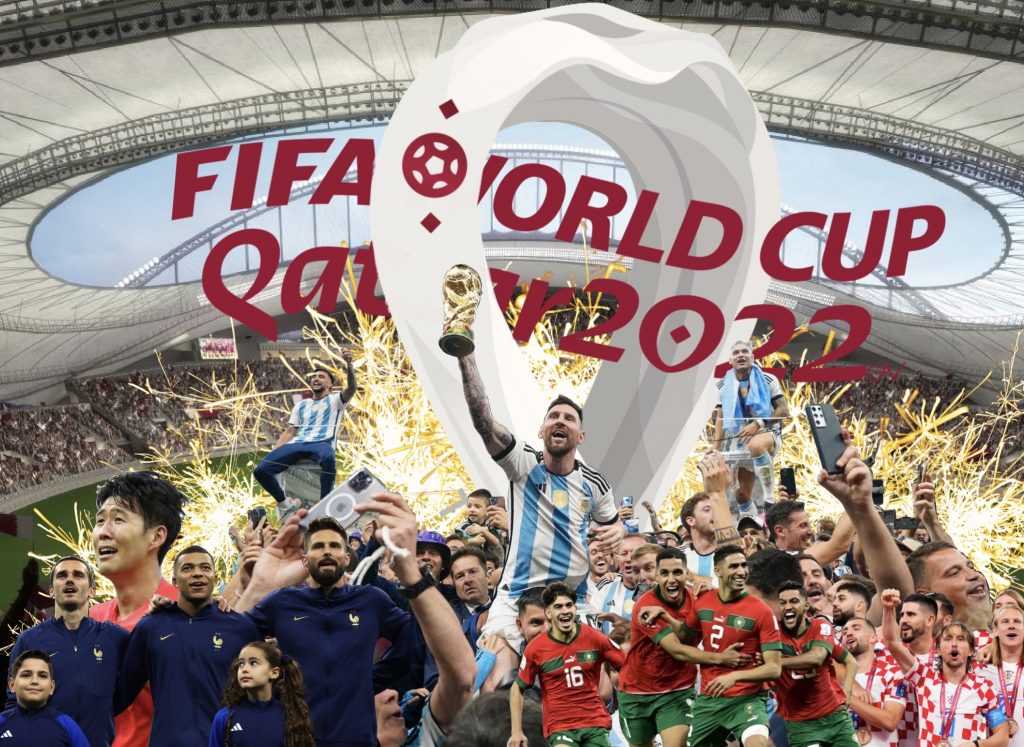 From November 20th to December 18th, RHS students obsessed over the World Cup, and some secretly watched the exciting games during their classes or crowded around a single computer screen in the cafeteria.
From November 20th to December 18th, RHS students obsessed over the World Cup, and some secretly watched the exciting games during their classes or crowded around a single computer screen in the cafeteria.
The series of soccer events did not only catch the attention of dedicated RHS soccer players. The games were watched by students “who have never touched a ball in their life,” says sophomore Alyssa Mchedlishvili, who rooted for Morocco throughout the tournament.
It was difficult for students and teachers to watch every game given that school was in place; therefore, Alyssa explains that she resorted to watching a few matches “during free periods with friends.” The student body also appreciated when the World Cup was broadcasted on the TVs in the cafeteria during unit lunch. Moreover, Mr. Kay, an RHS health teacher and girls varsity soccer coach, brings up the fact that a handful of teachers, including himself, chose to live-stream some of the games during their classes, which pleased multiple students. Science teacher Mr. Luo, however, mentions that his students let their watching interfere with school, for he states that “there were times that [he] knew students were watching [the games in his class].”
Furthermore, although students across the high school were rooting for various teams, it is evident that the World Cup unified RHS as a whole. Lilly Wavle, an RHS sophomore who was initially rooting for Portugal, notes that “people would talk about soccer [even if] they had never talked [to each other] before.” Mr. Kay supports this fact, as he says he “was impressed with…how it brought together various cultures. Aside from the US, there was a lot of support for Brazil [and] Korea in the school…itś kind of like a festival.”
While the World Cup was important to some students and teachers, others did not care for it much. For instance, RHS sophomore Isabella Katsaros communicates that “when [her] teacher turned [a game] on in class, [she] chose to do work for [her] other classes.” Mr. Luo also elaborates on how his “allegiance is with Sweden and they did not make it [to the World Cup]…[so he did not] necessarily care who won.”
Ultimately, one might expect that the World Cup’s intense elimination process would create conflict among the RHS student body with kids rooting for opposing teams, but it did the exact opposite: the World Cup formed a greater sense of community within the high school.
Jordan Katsaros
staff writer
Graphic: Gina Vaynshteyn
